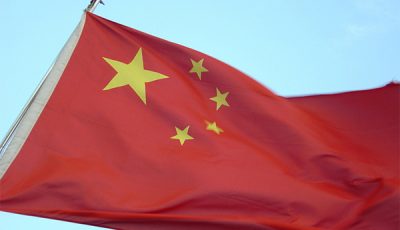Minecraft Censored as Porn by Chinese Government
 It is well-known that the Chinese government is squeamish when it comes to sexual content. This includes professionally produced porn, as well as amateur sex tape-type content.
It is well-known that the Chinese government is squeamish when it comes to sexual content. This includes professionally produced porn, as well as amateur sex tape-type content.
For instance, a notice issued by China’s National Office Against Pornographic and Illegal Publications in 2015 (as translated by the Wall Street Journal) stated that “so-called ‘indecent videos’ are harming social virtue, promoting pornography, severely disturbing order on the Internet and trampling on the moral and legal bottom line.” The Chinese government has imposed sentences up to life imprisonment for the production, distributing or selling of pornographic materials.
Considering this environment, crackdowns on sexual content are to be expected. But, what does the Chinese government have against the video game Minecraft?
In a WeChat post dated April 17, China’s porn censors announced that they had kicked off an investigation regarding “suspected vulgar and pornographic violations” with the locally-published version of Minecraft available in China. The office has also summoned representatives from NetEase, the Chinese company licensed to publish and distribute Minecraft in the country.
The world-building block game was released only two years ago in China, despite being published originally in 2011. The current complaint against Minecraft is related to a report from state television broadcaster CCTV. The report suggested that players on the Minecraft mobile app used provocative, sexually suggestive words in the names of their worlds. Per the Hong Kong-based Chinese tech magazine Abacus, one mother has suggested that she witnessed adults using the app to find underaged persons for nude video chats.
“Shanghai’s ‘anti-vice and pornography’ office requires enterprises to stick to the bottom line, implement responsibility, strengthen the foundation, strengthen supervision, and promptly carry out special investigations on vulgar information,” the announcement reads, as translated by Google. “It is necessary to further strengthen system construction, improve the professional quality of employees and establish a sound responsibility investigation system.”
The announcement continued: “The Municipal Party Committee’s Network Information Office, the Municipal Press and Publication Bureau, and the Municipal Cultural Law Enforcement Corps respectively put forward relevant requirements on implementing rectification, finding short-boards, strengthening audits, improving reporting, and coordinating investigations.”
Stating that it will better monitor game content and chats, NetEase has apologized. This has triggered outrage among the Chinese Minecraft community, with many asserting that NetEase is failing to properly run the game.
Interestingly, while the Chinese Minecraft reports over 150 million players since launching, it has failed to reach the cultural saturation it has in the West. Minecraft is ranked 488 in China among free apps, while it is a top-ten paid app in the United States.
While all of this seems like much ado about nothing, it is important to realize that China — despite the outright ban on pornography — is the world’s largest consumer of adult content. Per one estimation, China accounts for 28 percent of porn’s worldwide revenue, compared to just fourteen percent for the United States. This is despite the United States makes most of the world’s porn.
Fear that porn is being directed to persons under the age of eighteen in conjunction with the growth of amateur/user-generated content has convinced the nation to take an even stronger hand against what it sees as explicit content. For instance, in addition to Minecraft, this has manifested in a crackdown against LGBTQ-realted content in the country. Cases such as an erotic novelist receiving ten years in prison for including homosexual content in her novel “Occupy,” the removal of a self-published web based series that featured male-on-male sex and had over 1.8 billion views and the stripping of all gay-focused content from the social media network Weibo reflects the strict control the state has on free speech.
Image by hitesh choudhary via Pexels.












